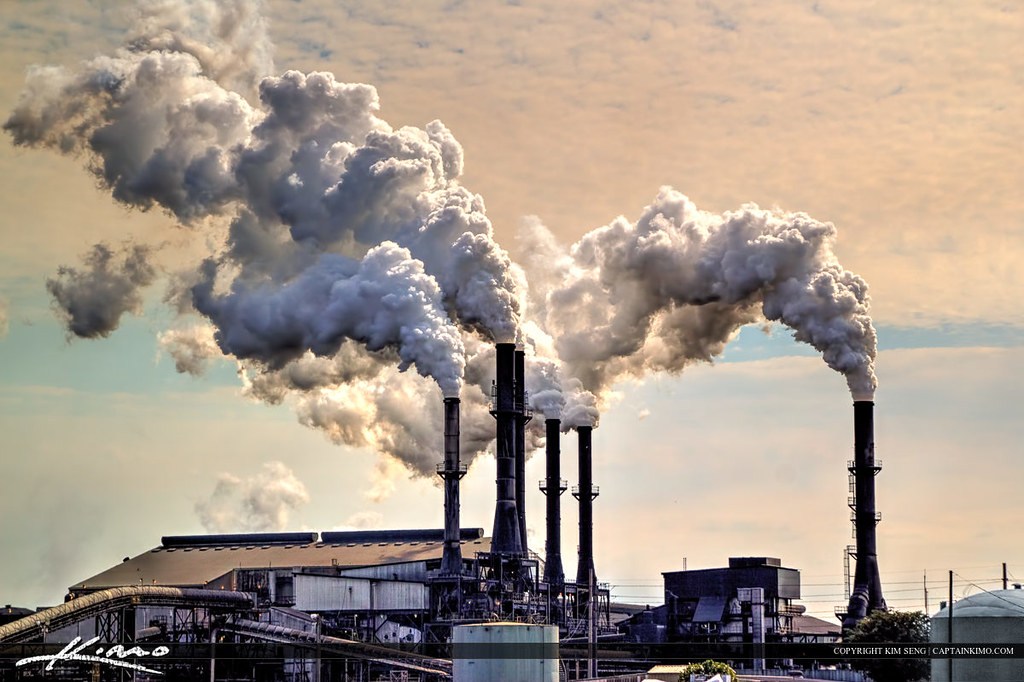Some of the most polluting companies based in Belgium will receive substantial compensation from the European Union - more than €7 billion - despite emitting around 40% of all greenhouse gases.
Nowhere in Europe does the heavy industry get such a high percentage of subsidies to offset energy costs than in Flanders, and this will continue to grow, according to reports from De Morgen and Flemish environmental association Bond Beter Leefmilieu (BBL).
"This undermines the 'polluter pays' principle, and are great presents in times of climate disasters," expert Tycho Van Hauwaert, a policy expert on circular economy and industry for BBL, said.
In Belgium, 243 companies, including ArcelorMittal, BASF, and ExxonMobil, produce about 40% of the greenhouse gas emissions and therefore are subject to the European Emission Trading System (ETS).
Under this 'cap and trade' principle, the overall volume of greenhouse gases that can be emitted by companies is limited by a 'cap' on the number of emission allowances, and within this limit, companies receive or buy emission allowances, which they can trade as needed.
Related News
- Water scarcity as floods rage: Belgium's climate change contradiction
- EU flight slot policy could result in 'ghost flights' from Asia
- Dutch university to develop tool for measuring climate change impact
However, these companies have been given around €7.3 billion worth of free allowances by the EU to prevent the industry from losing its competitiveness against other players in international regions where there are no additional climate costs.
Meanwhile, since 2013, €323 million in Flemish 'green energy' money has gone to companies such as ArcelorMittal, BASF, and ExxonMobil, which has made it the region with the highest share of green income being spent on subsidies for several years in the last decade.
In 2019, the "indirect compensation" was 48%, although Europe recommends a maximum of 25%.
However, Flanders is also one of the most industry-intensive regions, and as the level of electricity production using cleaner energy is relatively low in Belgium, it receives a smaller part of emissions trade profit, meaning these companies have to buy more allowances.
Many of these companies also receive millions in rebates on energy consumption, and hundreds of millions in tax reductions, such as the exemption from payment of withholding tax or the increased investment deduction.
Gifting and getting nothing in return
BBL has mainly criticised this system as this compensation comes on top of other allowances, however, the industry has counteracted this criticism by stating that it is making a lot of effort to improve when it comes to how much greenhouse gases are being emitted.
The Federation of Enterprises in Belgium (FEB) has responded that the ETS system has allowed the heavy industry to reduce its emissions by 43% over the last 16 years.
"This sector has already made considerable efforts and continues to do so. The free allowances should prevent industrial activities from relocating to regions and countries with more restrictive climate policies, which would mean an economic loss and an increase in emissions," spokesperson Pauline Bertrand told De Morgen.
However, BBL also stressed that the current policy generates billions for energy-intensive companies, but "does not produce the necessary emissions reductions, does not sufficiently promote innovation and leaves households and SMEs with a disproportionate share of the energy transition bill."
"The current jumble of support measures does not lead to the necessary shifts in the field of materials and processes," Olivier Beys, policy officer at BBL explained.
"We need to focus the many streams of money on innovation in breakthrough technologies, infrastructure works and creating sales markets for climate-friendly and circular products," he said, adding that it is crucial for a carbon-neutral Europe by 2050, that industry becomes a lever for the climate transition.
The organisation has recommended that a participatory roadmap, the strict application of the polluter pays principle and an independent observatory should be in charge of monitoring and evaluating emissions should be set up.
"We are throwing money at companies in the hope that they will stay here. But hope is not a strategy. We need to prepare the industry for the economy of the future with a coherent and strategic climate policy," Beys said.

